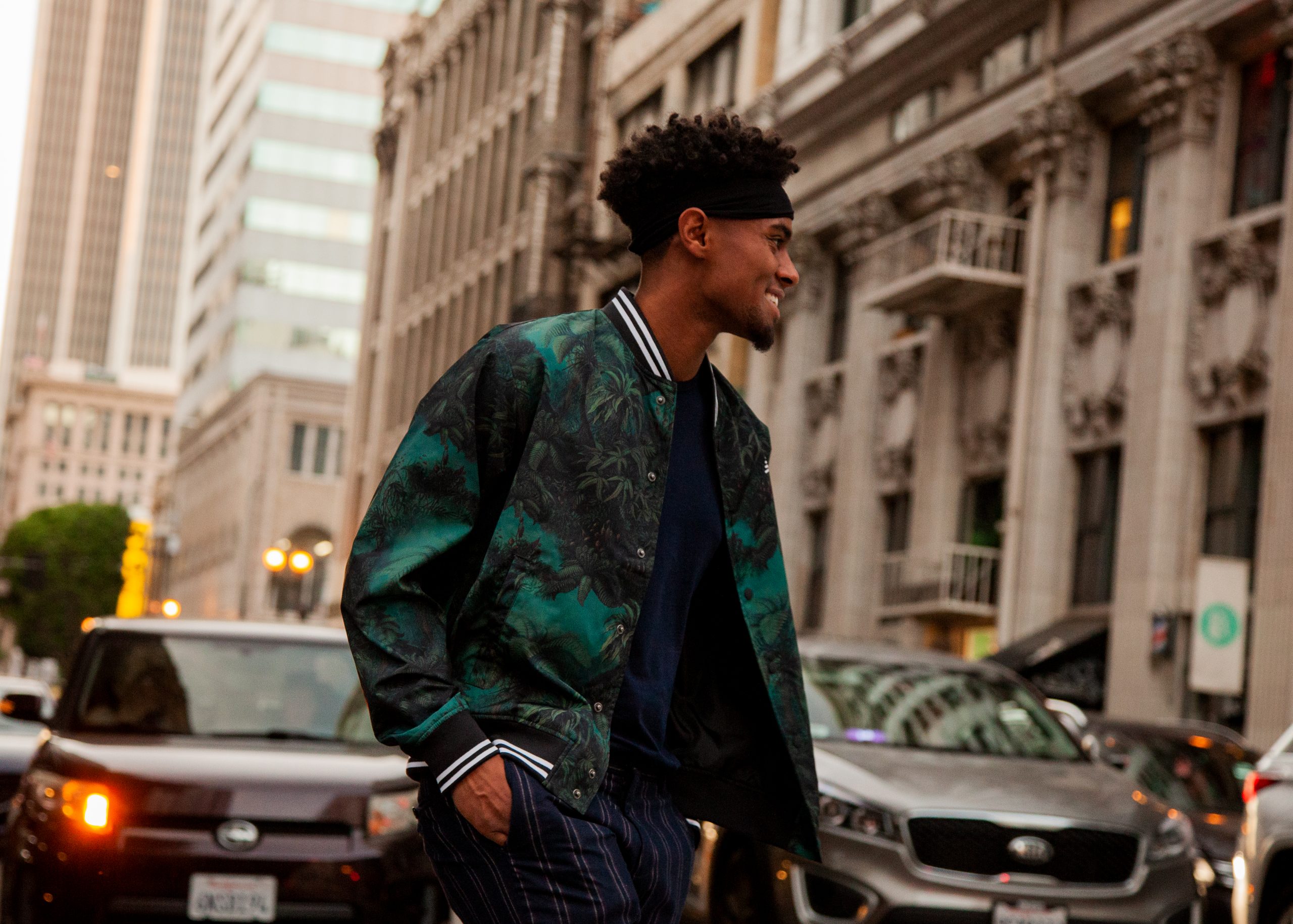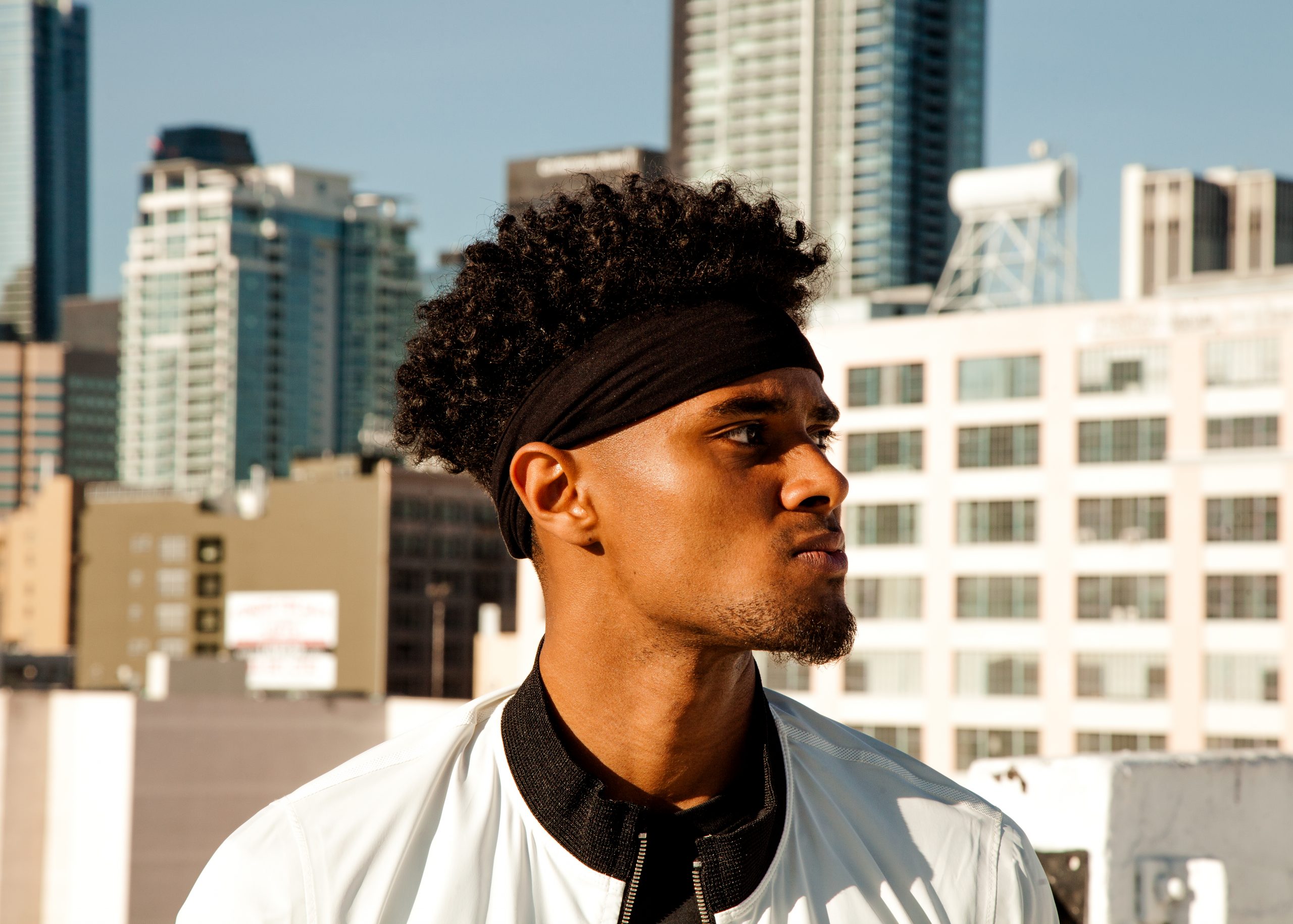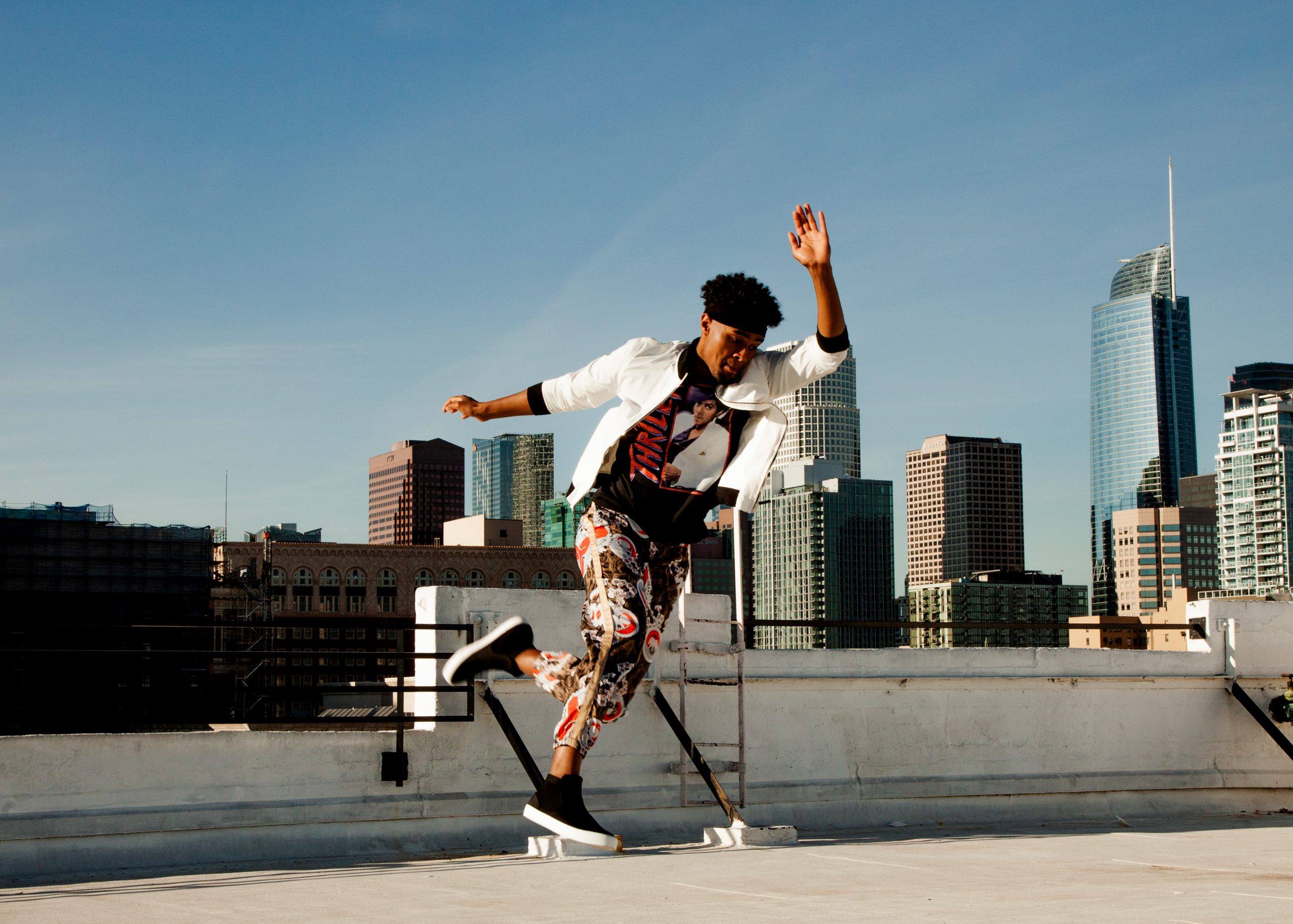
For many, the video capturing George Floyd’s murder spurred an awakening to what the word ‘brutality’ could encompass. For many, the protests for Breonna Taylor would be the first time a black woman’s name would fall from their mouths as an outcry, the five syllables imbued with purpose, delivered with outrage. For many, the benevolent last words of Elijah McClain have become a mantra signaling that the severity of consequence in the racial divide is a somber burden to be carried every day. The many here being mostly white people. The sobering realization is that for so many others, this is just another round of injustice they’re all too accustomed to.
“The emotional content and feeling behind performing the song was nothing new, but it was a disheartening and sad feeling to how relevant it had become.”
Sugi Dakks wrote “Colors” almost a year before George Floyd’s death. He’d already been performing it for months and because the uproar being so widely spread was the only thing unfamiliar, these events did not paralyze his efforts, they fueled them. Dakks recited the names of countless black victims and added it to the song to create a haunting refrain that would inextricably tie “Colors” to the social revolution of 2020.
Musically, Dakks sets himself apart by tastefully applying his acumen of jazz piano while writing lyrics that could survive on their own, not surprising coming from a National Slam Poetry finalist. “Colors” is an anthem of now, and even though this is far from the first time these words have fallen from his mouth… his impassioned pleas may finally find the hearts and minds of those of us that have had the privilege of sleepwalking through the mire of injustice.
We had the pleasure of speaking with Sugi about a number of things including his upcoming SOFAR Sounds virtual tour and his growing involvement with the Youth Justice Coalition…
The video and account of George Floyd’s murder was so jarring. At times, the shock from these events can paralyze the mind, heart and especially the voice. Can you elaborate on the moment you knew you would take action in the form of this song and did you have to work through any of that paralysis to write it?
These incidents and these events are nothing new. We have seen countless numbers of black people being abused and killed by police brutality and racism, the events of George Floyd was just another injustice added to this long list. So yes it was jarring but no it was not paralyzing, because these things happen so often. I myself have had enough fearful experiences with cops and white residents that I know this feeling all too well, as many black people (especially black men) do. In terms of releasing the song, we were actually suppose to release another single that was unrelated to social justice and we had been planning for months prior to George Floyd’s murder. After the event and the uproar of protesting it became clear that it wasn’t the right time to release the single and I myself didn’t want to put that kind of energy into the public, but rather try to help and do what I can with the platform I have to help push social change and awareness. So Colors was the most ready song to release that was in that spirit.
With a song that is driven by such difficult and emotional subject matter, how was the recording process for you? How did the experience of performing this material differ from other songs?
I had been performing this song at shows for months and months prior to releasing it. The song had actually been finished probably 6-8 months earlier, which also speaks volumes to the redundancy of these events and the racial divide in America. During the time of writing the song, I had been thinking deeply and passionately about the racial injustice I was seeing on a day to day basis and was deeply saddened by how vast the gap was between the black community and other communities. It was something that I’ve always cared about so in terms of the performance coming out passionately that was just another song for me. The only part that was updated was the bridge, where I state the all too many names that just keep adding up with no sign of slowing down. So the emotional content and feeling behind performing the song was nothing new, but it was a disheartening and sad feeling to how relevant it had become.
It is undeniable that art and music contribute to healing in these times. Do you recall a moment in your life when a piece of art or music helped you heal during other atrocities?
I think music serves different purposes for different people. So healing can takes many forms. Sometimes hearing an angry song about something you too are angry about validates your emotions and makes you feel less alone in your thoughts and opinions. Sometimes a song can offer a different perspective that changes your emotions or how you view certain topics. So I have been “healed” by many different songs at many different times in different ways. During this time healing music for me is sitting at the piano and just playing whatever I feel, that is “healing”.
You will be taking part in the Sofar Sounds ‘virtual tour’. Can you elaborate on what your fans can expect from this experience?
I am playing different online shows in different so far communities (cities) in hopes to try and bring awareness to racial injustices, try to encourage those listening to promote social change and stay active, and try to raise money for a great organization called the Youth Justice Coalition.
Can you tell us a little about what this organization does and what led you to them?
The Youth Justice Coalition (YJC) is an organization focused on working to build a youth, family, and formerly and currently incarcerated people’s movement to challenge America’s addiction to incarceration and race, gender and class discrimination in Los Angeles County’s, California’s and the nation’s juvenile and criminal injustice systems. The YJC’s goal is to dismantle policies and institutions that have ensured the massive lock-up of people of color, widespread law enforcement violence and corruption, consistent violation of youth and communities’ Constitutional and human rights, the construction of a vicious school-to-jail track, and the build-up of the world’s largest network of jails and prisons. I personally resonated with this organization specifically because I’m a big believer in trying to educate kids and better equip kids to handle the dysfunctions that the previous generations were not able to fix, and raise them in a way that is against ideals of racism, sexism, prejudice, and corruption.

It is fascinating to hear you are a graduate in Jazz piano as well as a National Slam Poetry finalist. The piano in “Colors” really hooked me. So tasteful. Even more so learning you have all the tools of a jazz pianist. With your writing process, is it the piano that spurs your creativity? Or do you find the words come first and then you find the music?
Music tends to come first in most cases. And yes, I tend to always start with piano which I am actually trying to break the habit of so as to not become redundant, but it usually gives me the emotional direction when I figure out the chords first. From there I try to find the topic that fits that emotional content and draft the words around that. Not a conscious thing I think about but I find it does tend to happen that way.
Speaking of words, how would you describe the difference you feel in performing music from poetry? How much does the music play a role in what comes out of you?
Performing poetry and performing music are vastly different experiences for me, great question! Poetry has no outside support, so the attention and focus is way more on the meaning of the word and silence in between each word. All the weight of translation comes from the interpretation of the word and the tone behind it. Music serves way more as an emotional atmosphere. So actually the weight is less so about the definition of what is being said but how the words add to the atmosphere already in place. So I focus way more on creating an emotion when playing music, where as I focus way more on defining meaning, giving a clear definite concrete direction when performing poetry. That might sound like mumbo jumbo but it’s hard to explain.
For the readers, are there any other organizations or groups that have been inspiring you during this time of what we hope to be real change?
Real change comes in many forms for me. You can sign petitions, support oppressed communities (buying their products), educate yourself on issues of race through scholars like James Baldwin, Martin Luther King, Toni Morrison, W.E.B. Debois, etc. or just google it all. Having difficult conversations with your peers and your inner circle about race to spread awareness and thus kill the mass amount of ignorance involved in racism that causes so much aggression and tension because people don’t try to understand each other. Voting is important to have power remain within the people. There’s great organizations like the NAACP, Colors For Change, Black Lives Matter, there’s lots of organizations doing work to try and change this narrative. Laws need to be change but as well as laws, the entire American culture needs to change when it comes to issues or race and equality.

CONNECT WITH SUGI DAKKS
photos / Leo Deveney
story / Chris Hess
